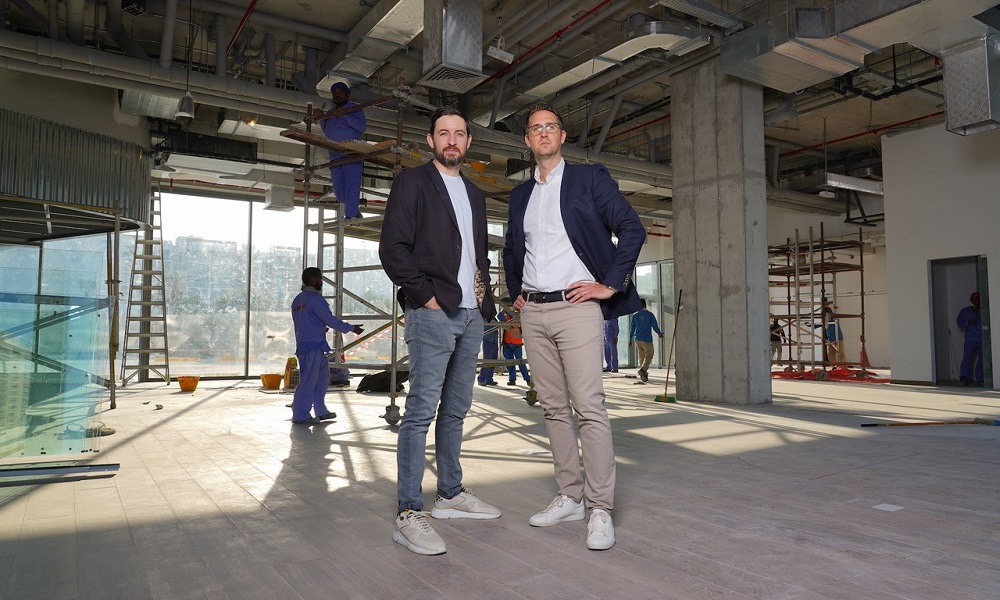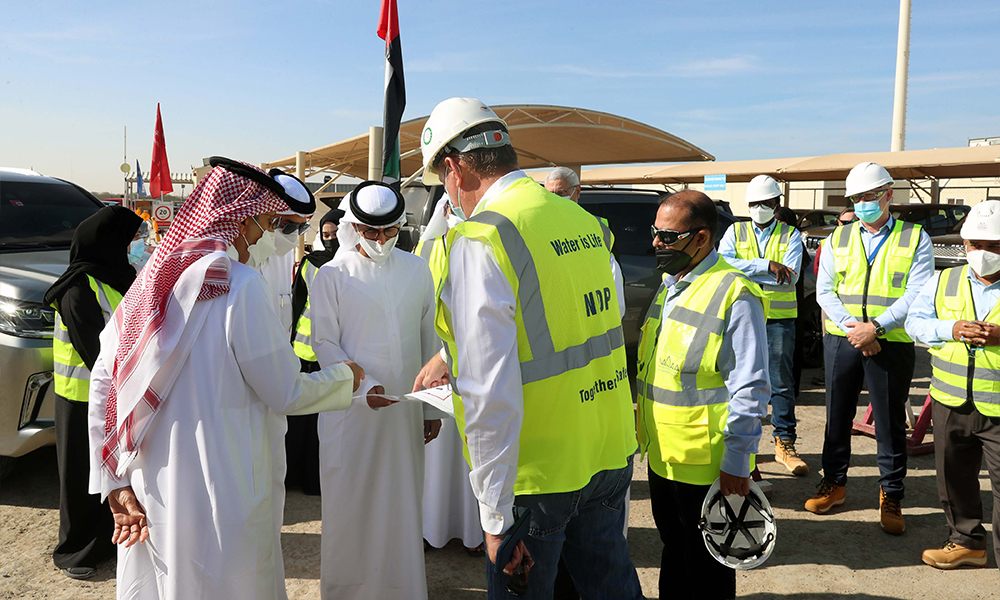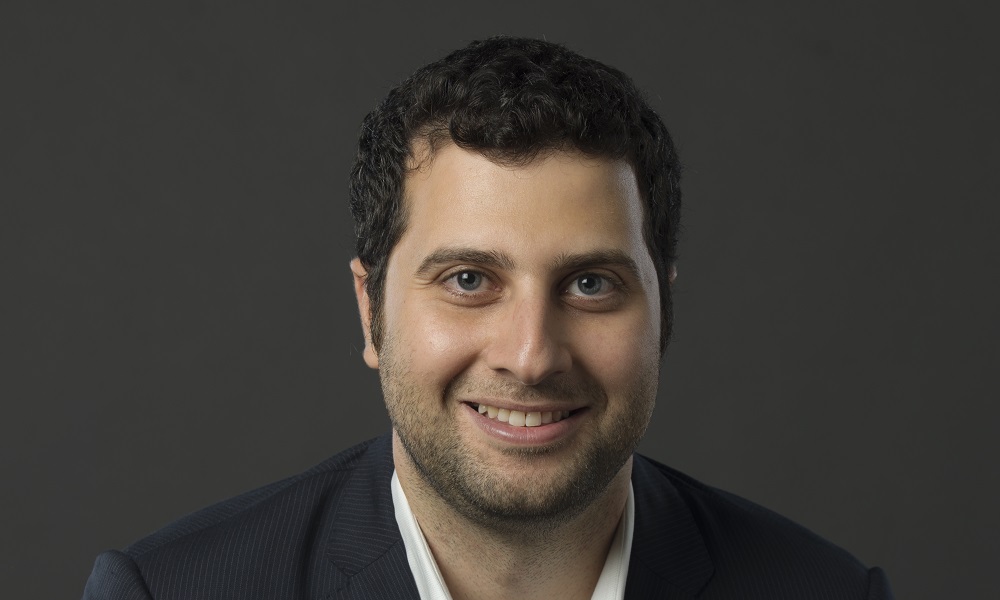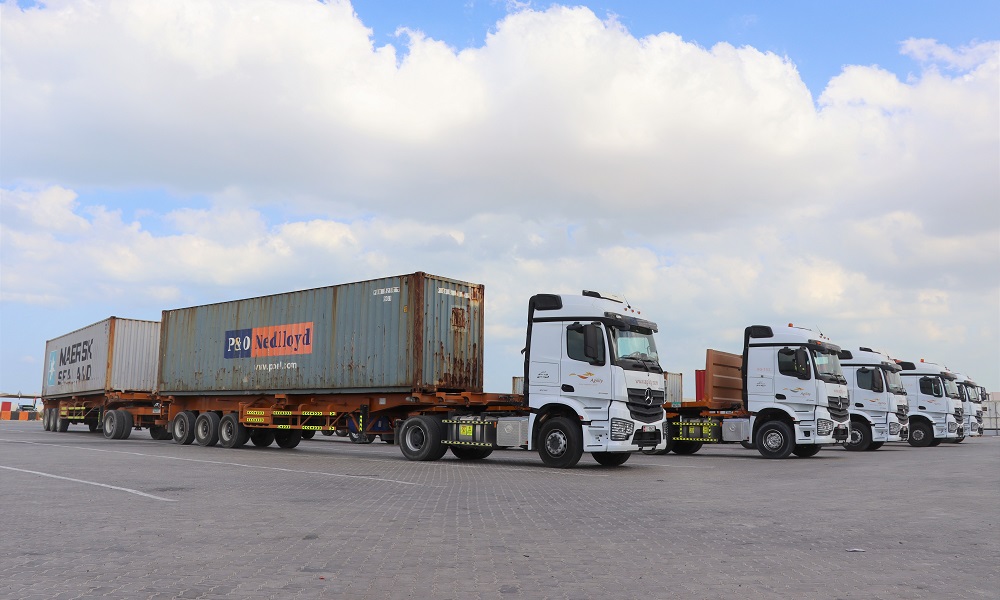You don’t have to be on a Dubai road for very long before you see the now familiar sight of one of Cafu’s trucks en-route to yet another customer needing a top-up. In just a short amount of time, the company has gone from on-demand fuel delivery novelty to a major player in the UAE’s gas hungry market.
The end of November marked its three-year anniversary and in that time it has built up a fleet of over 200 (largely) Hino trucks and is reshaping the way many private and corporate customers keep their vehicles on the road. It is a stunning example to any doubting fleet operator of the power of digitalisation to grow a business – certainly in the confined and tech-savvy market that is Dubai.
So quick has Cafu’s rise been, that when general manager Antonio Al Asmar talks about joining the company in its early days, he only has to look back three and a half years.
“I’ve seen the rise from just being an idea in our founder’s (Rashid Al Ghurair) mind into the company we are right now, where we do almost 1 million AED in revenue each day. We now have more than 210 trucks, 500 pilots and 100 people in our head office. So, I’ve seen that growth in a relatively short period of time,” he tells T&FME.
Its high-profile in the UAE belies what is obstensibly a fledgling start-up taking its first flights into the market. Typically, that can mean being involved in a raft of different parts of a young business and Al Asmar’s own role as general manager spreads across finance, operations and fine tuning its customer proposition. The former strategy consultant spent years firing over ideas to clients that he never saw implemented, but his embedding into Cafu has been a chance to finally steer a concept into reality. However, even the fast-talking and faster-thinking Al Asmar was surprised at the breadth of the ambition Cafu’s founder wanted him to embrace.
“I think in our founder’s mind, he wanted to be even much bigger than what it is right now,” he jokes. “There was nothing, just an Excel model at the beginning. I was overwhelmed. Oh, I’m like this seems too aggressive. There were so many trucks, so many litres and we still don’t have anything… those were my first thoughts, but from day one I could see the issue with a gas station. For me it doesn’t make sense. In my mind, I was thinking why do we still need to do it this way? It’s a real problem that we are solving and that’s what I think has made us so successful.”
He continues: “It is inconvenient: I need to look for a gas station. From the start, I’m anxious because I need to look for one when I’m empty. Once I find one, I then need to do a detour. And when I’m there, I need to wait.”

Cafu hasn’t been entirely created out of a vacuum or merely as a reaction to being frustrated at a fuel pump. Prior to launch, the team took a global look at whether – and how – it was being done in other countries.
“I remember when I first joined, one of the first things was to look at who else is doing this in the world. And when you look around, there is one big company in the US, Booster Fuels, who do on-demand. By the way, we are now bigger than them so we are the biggest on-demand fuel delivery company in the world. But, yes, there were two or three companies in the US that is Booster, Yoshi and a third one (Filld). There was one in the UK. There was one in France, but they were small players and you could feel they were not big believers in the concept. They were doing small trucks, small operations: nothing really at scale.”
Hard data in the local UAE market at the time was hard to come-by. Understandable perhaps for a new concept but the feedback Cafu did get suggested that there was a genuine excitement around the idea of on-demand fuel delivery.
“If you asked people in 2006 whether they want an iPhone they would say ‘I don’t know’ but internally you could see the conviction. For Rashid, it was a no-brainer. Not only did it make sense, but he was also in the oil and gas industry for 10 years, so he had that experience and understood the business really well.
He continues: “The economics of a gas station aren’t all that great, so we thought we can disrupt this eco-system that no-one is disrupting.”
A disruptor it may be, but during the early months of the operation when volumes were low, Cafu was reliant on the established fuel retailers in the market. Its general manager says at the time those suppliers were sceptical that it would be a success.
“I think that they saw the benefits of the model versus the gas station, but they were rejecting change. Because if you have been owning gas stations for the last 50, 60 years, you are very happy with that way. At the beginning, I would say they were sceptical and a bit aggressive, and not very keen on having us operate,” he recalls. “However, I think what really worked well for us is that we were in Dubai and the government were very supportive of this new initiative. The government wants to see new jobs being created in technology; it wants to see entrepreneurs try new things that haven’t been done anywhere else. With that support, and the support from the Dubai Economic Department and Civil Defense we were able to start our first operations.”
Fast-forward three years, and the way Cafu is viewed has changed: “Now, I think they see us more as a legitimate competitor and I think our market share is now almost 4%. We have a strong presence and a lot of people will swear by Cafu.”
At lot has changed since 2018. E-commerce and on-demand services are enjoying rapid growth and this evolution of consumer habits – stirred on by the impact of Covid-19 – means Cafu is now regarded as a partner in the UAE’s fuel retail landscape.
“The focus is on who wants to work with us,” he continues. “Whether it’s selling us fuel, selling us their lubricants and are considering other products, I think we have moved to a point where the concept has been proven and we have moved away from the initial discussion of this will never work or a truck will never be able to deliver in a residential area. All of these, we have overcome.”
It has also overcome the effect of the worst of the Covid-19 pandemic despite an obvious drop-off in demand: “People were realising there is a better way. Let me do contactless. So I think Covid gave us a lot of awareness and a lot of more adoption and you can see this in all the UAE all digital providers.”
When discussing Cafu in the T&FME offices, it is often asked how does it manage to be competitive in the market-place? Unlike its peers in the traditional space, it is not at the end of a pipeline but at the end of those fuel providers supply lines. Al Asmar explains that relatively good margins on fuel prices at retail give it some wriggle room, but also its rapid growth has helped it to quickly reach a scale where it can benefit from classic economies of scale.
“Year-on-year our volumes are growing, so every time the discounts our suppliers are giving are getting higher and higher. Now, we are almost very close to what the gas station is charging,” he says. “Remember, we just go and pick up the fuel, so there is no incremental costs on the supplier, which makes our economics very, very stable and it’s easy for us to manage. And then we are making money in the same way the gas station is, and that is buying in bulk and selling in retail. The more we sell, the more we are making.”

What is sells has also evolved. You can now book car washes, battery changes or just pick up some of those household essentials you normally pick-up when you fuel-up: “In a brief summary, we are exactly like a gas station!”
Strong word of mouth has been a major factor in its progress to date and much of that is based on themes many fleets would recognise, such as customer retention through a reliable service. If you’re main offer is convenience then you need a relentless attitude to improving your fleet operation.
“Like any operation, sometimes there is a delay. Sometimes we don’t show up… these things happen…but a lot of our effort to retain the customer is making sure we are always adding trucks. We are always adding pilots and we are always training them to make sure our service is more and more reliable as we are expanding as a company.
“And the second key thing that’s critical to maintaining your customer is the customer journey or the experience: the way the pilot behaves; how we inform the customer; how we talk to the customer; how he places the order and how easy is doing that? It is critical for us to succeed that the customer has to say yes, this is more convenient. Our price is the same as a gas station. What we are selling is that convenience.”
During our chat, Al Asmar tells T&FME that half of its business is in the B2B sector, he believes that it its success in the area is not widely understood.
“People think of Cafu through the app and the consumer (business) but that’s only 50 percent of our business. Of basically companies that have fleet, we have more than 500 and our biggest customer has more than 1,000 cars. Our smallest one will be at least 20 cards: we try not to have smaller than that number. The way it works for them is super convenient and the benefits are three key things. One is the convenience and the downtime they save. Imagine if you have 200 Cars, the 200 drivers will need to waste some time to go to the gas station.
“The second key thing that’s important for all these customers is we that give them a lot of control into what’s happening in their operations. Even in the UAE, a lot of customers wonder what happens when my trucks goes to refueling: maybe there’s a bit of embezzlement happening. We usually do the trucks at the site it is almost impossible to happen. It also saves on unnecessary mileage: if you have 200 cars that need to go to the gas station there’s a lot of extra CO2 emissions.”
With the sceptics won over as it enters its fourth year, Al Asmar says the firm is planning long term, even looking beyond tankers and how it can provide on-demand charging or infrastructure for non-petrol or diesel vehicles. T&FME asks whether the company could also be ready to take Cafu into other markets.
“People here in Dubai will pay for the convenience but from day one, as a company we have said that we want to prove it here, but we want to take the concept global. We truly believe we are a very scalable model. And it’s a model that is universal. Nobody in the world will tell you I like going to a gas station.”
The post Cafu fuelling growth: Antonio Al Asmar interview appeared first on Middle East Construction News.
Source: MEConstructionNews























